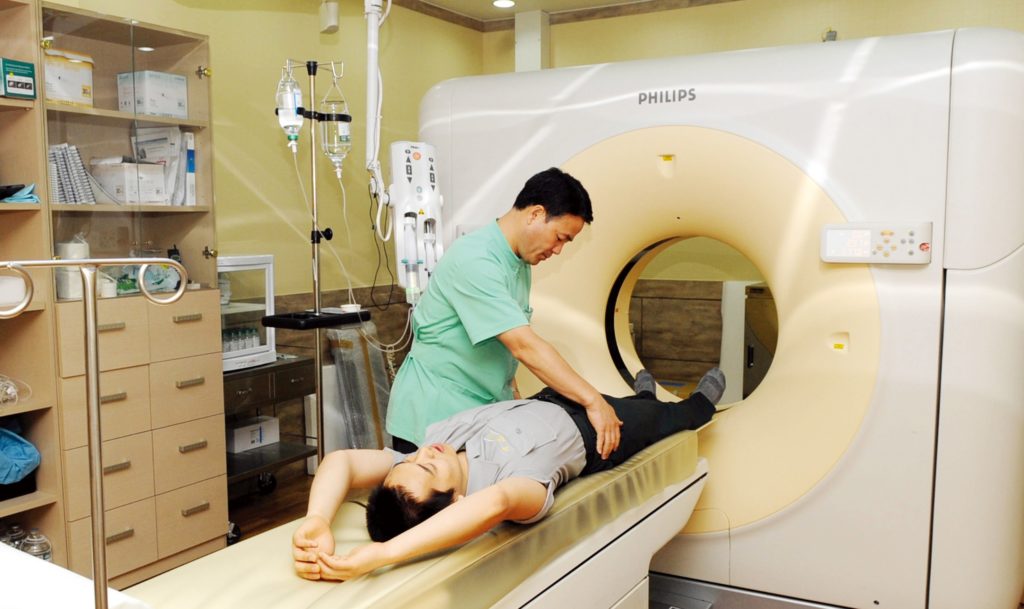The Peninsula
Korea Unveils Ambitious Plans for "Mooncare"

By Jenna Gibson
While the United States is locked in a fierce debate over Obamacare, South Korea is going through its own deliberations about healthcare reform. On August 9, right before hitting his 100th day in office, Korean President Moon Jae-In unveiled his plan to expand Korea’s already extensive healthcare system, a proposal quickly dubbed “Mooncare.”
Korea currently provides universal healthcare through its National Health Insurance Service. All citizens are required to pay into the fund via taxes, and they are all covered for general medical costs. Private insurance does exist, and people usually purchase those additional policies to cover large medical expenses, such as a major accident or cancer treatment.
One of President Moon Jae-In’s major pledges has been to reform this system, with the particular goal of decreasing costs for low-income patients. Moon’s plan focuses on three major changes: first, he wants to expand the types of procedures covered by the state insurance to eventually encompass all medical treatment except purely optional operations such as non-medically indicated cosmetic surgery. In addition, he plans to lower the cap for out-of-pocket expenses so that low-income Koreans would only have to pay up to 1 million won ($883) per year for their medical care. Finally, he plans to increase emergency financial support for those in the lower half of the income bracket, providing them access to up to 20 million won ($17,663) in case of a major health crisis.
“We will continue to move toward building a fair and just Republic of Korea that will ache when the people ache and will only smile when the people smile,” Moon said at the plan’s unveiling. “We will build a country where every person is free of concern over medical costs and can receive treatment for any disorder without having to worry about expenses.”
However, not everyone is enthusiastic about these sweeping changes. Korea will need 122,164 more nurses, 1,613 pharmacists, and 785 doctors to implement the president’s plan, according to a report from the Ministry of Health and Welfare. And critics have balked at the 30.6 trillion won ($26.9 billion) pricetag for the plan, saying that even if the government covers the increase for now, those costs may eventually be passed back down to taxpayers. This plan fits in with accusations that Moon is becoming a “Santa Claus President” – along with this healthcare plan, Moon has already promised several major welfare reforms including a minimum wage increase and a boost for both pension and child care funding.
Supporters, on the other hand, praise the program’s ambition and its focus on helping low-income Koreans. They also noted that this increased coverage could lead to a boom in the medical and biotech industry.
Moon’s approval rating has remained high, increasing slightly to hit 78 percent in the days following his healthcare announcement. According to a poll conducted on August 18-19, 85.3 percent of Koreans surveys said Moon was doing a good job managing state affairs. According to the Korea Herald, “When asked about having a ‘medium burden, medium welfare’ system in South Korean society, 81.6 percent supported the idea, with more than 75 percent of the respondents saying they are willing to pay more taxes to expand welfare and solve bipolarization issues.”
While Moon will have to carefully manage the significant funding necessary to conduct this and other major upgrades to Korea’s social safety net, it seems he has widespread support among the Korean public to begin moving forward with his ambitious reform agenda.
Jenna Gibson is the Director of Communications at the Korea Economic Institute of America. The views expressed here are the author’s alone.
Image from Republic of Korea Armed Forces’ photostream on flickr Creative Commons.
